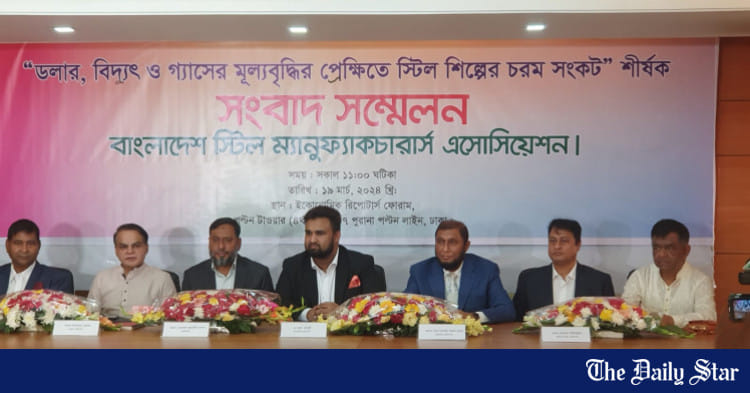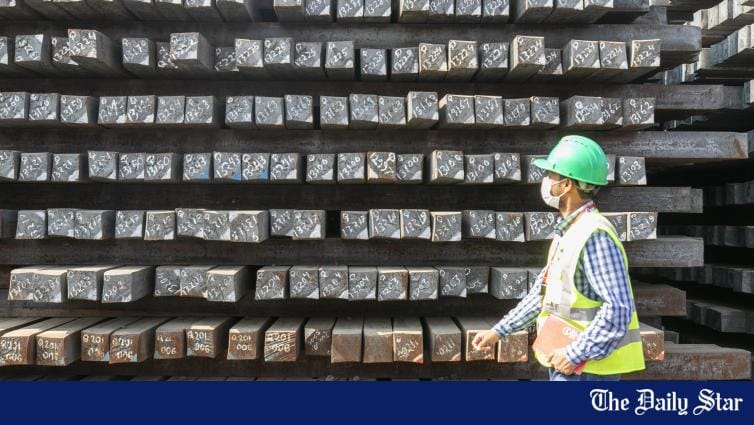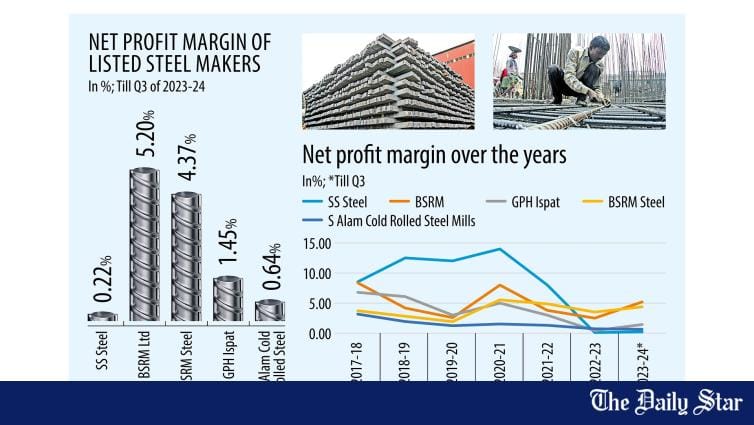Saif
Senior Member
- Joined
- Jan 24, 2024
- Messages
- 16,236
- Likes
- 8,072
- Nation

- Axis Group

Steel industry in Bangladesh
The steel industry is an established and growing industry in Bangladesh. Predominantly based in the port city of Chittagong, the industry has emerged as a major contributor to the national economy. According to the experts, the growth of steel industry in Bangladesh is mainly induced by the rapid expansion of the country's shipbuilding and real estate sector, as well as the major investments in various infrastructure projects throughout the country.
History
The first ever steel mill was established in 1952 by the H Akberali Group of Industries as the "Bangladesh Steel Re-rolling Mills (BSRM)". Located at Nasirabad, Chittagong, the plant formed re-enforcing bars and structural sections. The mill gradually prolonged, adopting new technological know-how by setting up a cross-nation European mill in 1987 which incorporated a wire-rod mill. The BSRM group added a captive billet manufacturing plants in 1996 so as to make sure a stable distribution of billets of its plants. In 2006, the company installed pilot cold rolling mill to make ribbed high strength wires.
By this time, KSRM Steel Plant Ltd emerged. Very recently, they have established Billet Plant at Chittagong. Their factory situated at Ghoramara, Sitakunda at Chittagong. KSRM is a steel manufacturing organization belonging to Kabir Group of Industries. One of the largest rolling mills in Bangladesh. Moreover, several other steel companies emerged in the country, most notably GPH Ispat, RRM (The Rani Re-rolling Mills LTD, Kabir Steel Re-rolling Mills, AKS, Anwar ISpat, HKG Steel Mills Ltd., Rahim Steel Mills LTD, Seema Steel Re-rolling Mills LTD, Bashundhara Steels etc.
Market
German plant maker SMS Group has announced that it has signed a contract with Bangladesh based Bashundhara Multi Steel Industries Limited to build an plant in Bangladesh.
The steel industry is an established and growing industry in Bangladesh. Predominantly based in the port city of Chittagong, the industry has emerged as a major contributor to the national economy. According to the experts, the growth of steel industry in Bangladesh is mainly induced by the rapid expansion of the country's shipbuilding and real estate sector, as well as the major investments in various infrastructure projects throughout the country.
History
The first ever steel mill was established in 1952 by the H Akberali Group of Industries as the "Bangladesh Steel Re-rolling Mills (BSRM)". Located at Nasirabad, Chittagong, the plant formed re-enforcing bars and structural sections. The mill gradually prolonged, adopting new technological know-how by setting up a cross-nation European mill in 1987 which incorporated a wire-rod mill. The BSRM group added a captive billet manufacturing plants in 1996 so as to make sure a stable distribution of billets of its plants. In 2006, the company installed pilot cold rolling mill to make ribbed high strength wires.
By this time, KSRM Steel Plant Ltd emerged. Very recently, they have established Billet Plant at Chittagong. Their factory situated at Ghoramara, Sitakunda at Chittagong. KSRM is a steel manufacturing organization belonging to Kabir Group of Industries. One of the largest rolling mills in Bangladesh. Moreover, several other steel companies emerged in the country, most notably GPH Ispat, RRM (The Rani Re-rolling Mills LTD, Kabir Steel Re-rolling Mills, AKS, Anwar ISpat, HKG Steel Mills Ltd., Rahim Steel Mills LTD, Seema Steel Re-rolling Mills LTD, Bashundhara Steels etc.
Market
German plant maker SMS Group has announced that it has signed a contract with Bangladesh based Bashundhara Multi Steel Industries Limited to build an plant in Bangladesh.








































